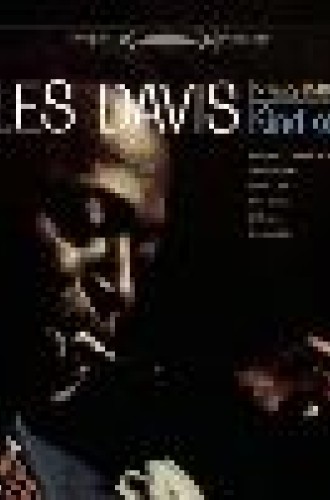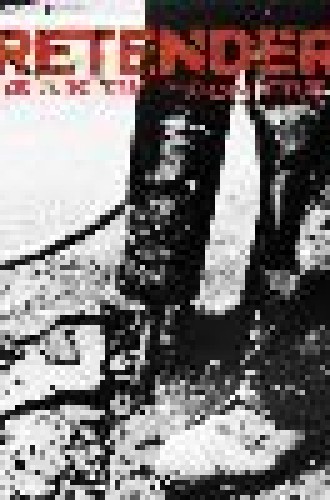On music
One of the high-water marks of popular music, certainly of jazz music, is Miles Davis’s Kind of Blue (1959), which almost by itself jolted jazz out of the bebop era. A Davis biographer said that with Kind of Blue he was “trying to evoke the sound of a gospel choir he had once heard on a dark road in Arkansas.”
Kind of Blue: 50th Anniversary Collector’s Edition (Legacy/Columbia) offers a gold mine of outtakes, related tracks, a DVD documentary, a commemorative essay—and a blue vinyl LP inside the original album packaging.
On the series of false starts and run-throughs for “Freddie Freeloader,” Davis’s perfectionism and ear for detail leap to the fore. On the first take he cuts off after less than a minute, deeming it “too fast.” The difference would be barely audible to the average listener, but Davis is right. On the second take he halts with a sharp whistle, telling pianist Wynton Kelly, “Don’t play no chord going into the A-flat.”
Instead of using complex chords, Davis envisioned Kind of Blue as heavy on blues influence, built on spare scales and the improvisations around them. Even an 18-second snippet from “All Blues” shines a light on how taxing the sessions could be: the musicians practically collapse from playing the same riff over and over. (The final version of the song clocked in at 11:32.)
For all the sweating done over details, Kind of Blue took less than ten hours of studio time to record. Davis had assembled a band for the ages, including John Coltrane on tenor sax, Julian “Cannon ball” Adderley on alto sax, Wynton Kelly and Bill Evans on piano, Paul Chambers on bass and James Cobb (the band’s only surviving member) on drums. The original 45-minute album sounds more pristine and crisper than the earlier Columbia CD editions, highlighting the growl in Cobb’s ride cymbal on “All Blues.” The project was remixed and remastered from the original session tapes recorded at Columbia’s 30th Street Studio in New York.
Davis and his soloists play with unfettered freedom, somehow sounding loose and threading the needle at the same time. Their interplay dispels any notions of jazz as boring or technical; it’s a musical conversation marked by give and take, and likely to give you goosebumps.
Other albums of note:
Chrissie Hynde returns to form with an album that plays to her strengths as a lyricist and rocker. Concrete was recorded live in a studio with session drummer Jim Keltner, known for his work on solo Beatles records. “The Nothing Maker” knits a sepia-toned sonic quilt with shaker, slide guitar and 12-string electric, while “Boots of Chinese Plastic” roars from the gate, sporting this poignant verse: “Jesus Christ came down here as a living man / If he can live a life of virtue, I hope I can.”
An arresting visual artist once signed to Peter Gabriel’s Real World label, Arthur turns in a husky-voiced effort that merits comparisons to roots rockers Wilco, the Jayhawks and James Mc Murtry. Songs such as “Faith” balance an upbeat rock feel (augmented by slide guitar and sitar) with paradoxical lyrics: “When I go, it’ll be like no one was here / Nothing to love and nothing left to fear.” “Winter Blades,” with its distorted vocal and stomping beat, feels like a fuel-injected Rod Stewart outtake.
Time and personal tragedy haven’t been kind to Brian Wilson, who sings more like a weathered uncle than a golden-throated Beach Boy on Sun. But he certainly makes a valiant effort on this concept album that traces a day in L.A. and takes its title from a Louis Armstrong track. Two Chicagoans (Paul Von Mertens on orchestrations and guitarist Scott Bennett as co-songwriter) add bright California flavor to the music, and Van Dyke Parks contributes his lyricism to the amusing narrative breaks.
Many country artists extol faith themes, but Raye has always gone further in proclaiming his Christianity, while avoiding too-corny conceits. The title track’s country-rock beat recalls Don Henley; Raye’s raspy tenor even sounds like that ex-Eagle as he recounts tales of sinners lured a step too far. “Mid-Life Chrysler” celebrates a farmer who’d rather paint the town with his wife than get a hair weave, while “The Only Jesus” reminds listeners of their roles as living witnesses.
Painstakingly remastered by Sundazed, the 24 songs here (presented in chronological order) sound as if Cash recorded them just weeks ago. Alongside such hits as “Get Rhythm” and “Folsom Prison Blues,” lesser known songs hold their own, as much for unvarnished honesty as musicality. On “So Doggone Lonesome,” you can hear Cash trying to find his voice while guitarist Luther Perkins struggles to keep up. Their sound (rounded out by bassist Marshall Grant) hit paydirt in 1956 with “I Walk the Line,” also featured here.










